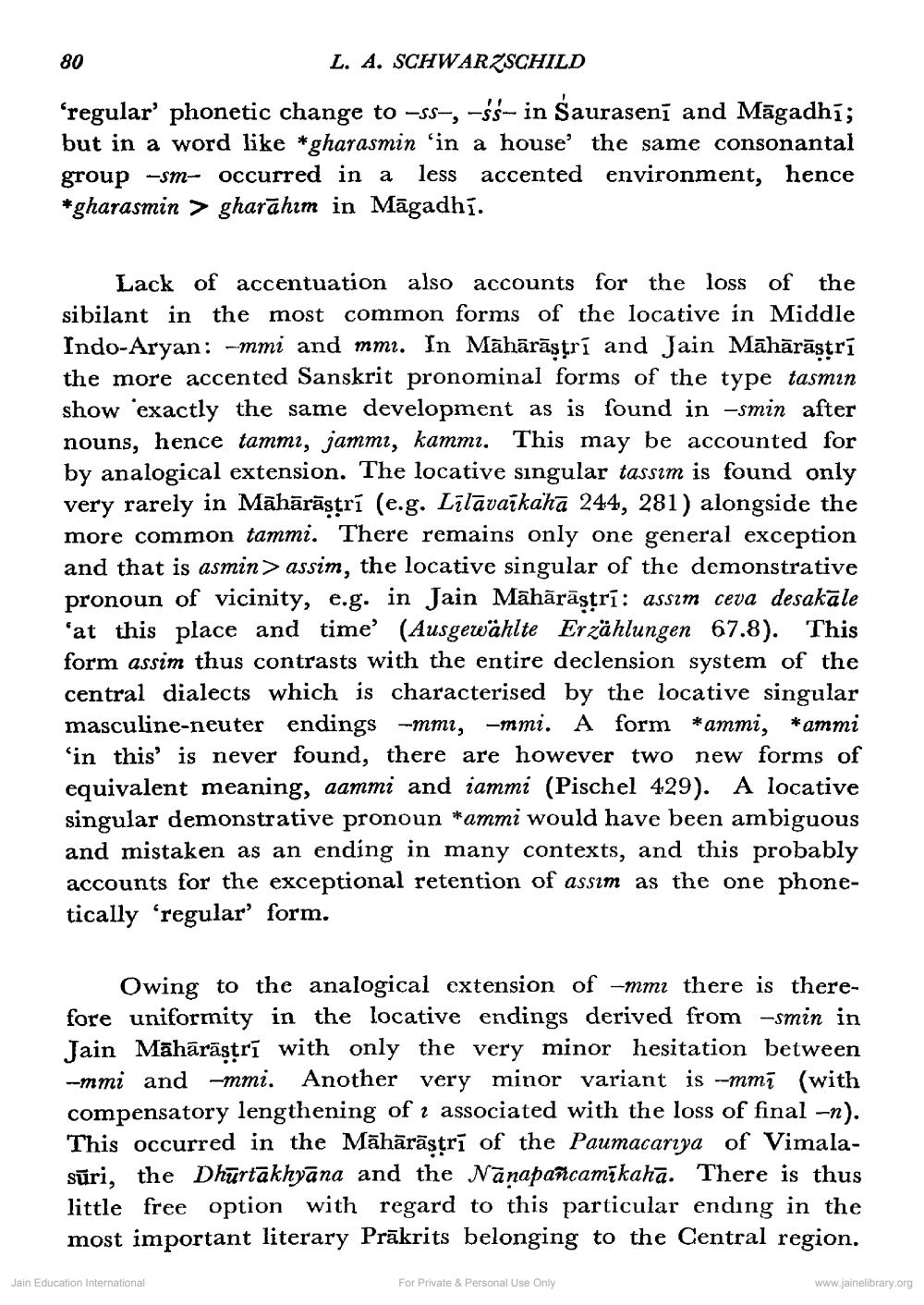________________
L. A. SCHWARZSCHILD
'regular' phonetic change to -ss-, -śś- in Šaurasenī and Māgadhi; but in a word like *gharasmin 'in a house' the same consonantal group -sm- occurred in a less accented environment, hence *gharasmin> gharāhim in Māgadhi.
80
Lack of accentuation also accounts for the loss of the sibilant in the most common forms of the locative in Middle Indo-Aryan: -mmi and mm. In Māhārāṣṭrī and Jain Māhārāṣṭrī the more accented Sanskrit pronominal forms of the type tasmin show exactly the same development as is found in -smin after nouns, hence tammi, jammı, kammi. This may be accounted for by analogical extension. The locative singular tassim is found only very rarely in Mahārāṣṭrī (e.g. Līlāvaikahā 244, 281) alongside the more common tammi. There remains only one general exception and that is asmin> assim, the locative singular of the demonstrative pronoun of vicinity, e.g. in Jain Mahārāṣṭrī: assim ceva desakāle 'at this place and time' (Ausgewählte Erzählungen 67.8). This form assim thus contrasts with the entire declension system of the central dialects which is characterised by the locative singular masculine-neuter endings -mmi, -mmi. A form *ammi, *ammi 'in this' is never found, there are however two new forms of equivalent meaning, aammi and iammi (Pischel 429). A locative singular demonstrative pronoun *ammi would have been ambiguous and mistaken as an ending in many contexts, and this probably accounts for the exceptional retention of assim as the one phonetically 'regular' form.
Owing to the analogical extension of -mm there is therefore uniformity in the locative endings derived from -smin in Jain Mahārāṣṭrī with only the very minor hesitation between -mmi and -mmi. Another very minor variant is -mmī (with compensatory lengthening of associated with the loss of final -n). This occurred in the Mahārāṣṭrī of the Paumacarıya of Vimalasūri, the Dhurtakhyāna and the Naṇapañcamikahā. There is thus little free option with regard to this particular ending in the most important literary Prākrits belonging to the Central region.
Jain Education International
For Private Personal Use Only
www.jainelibrary.org




